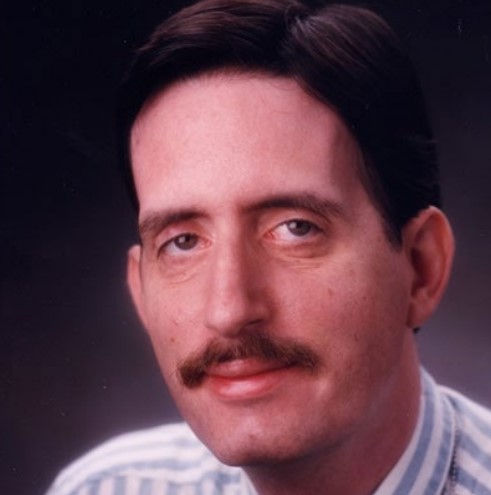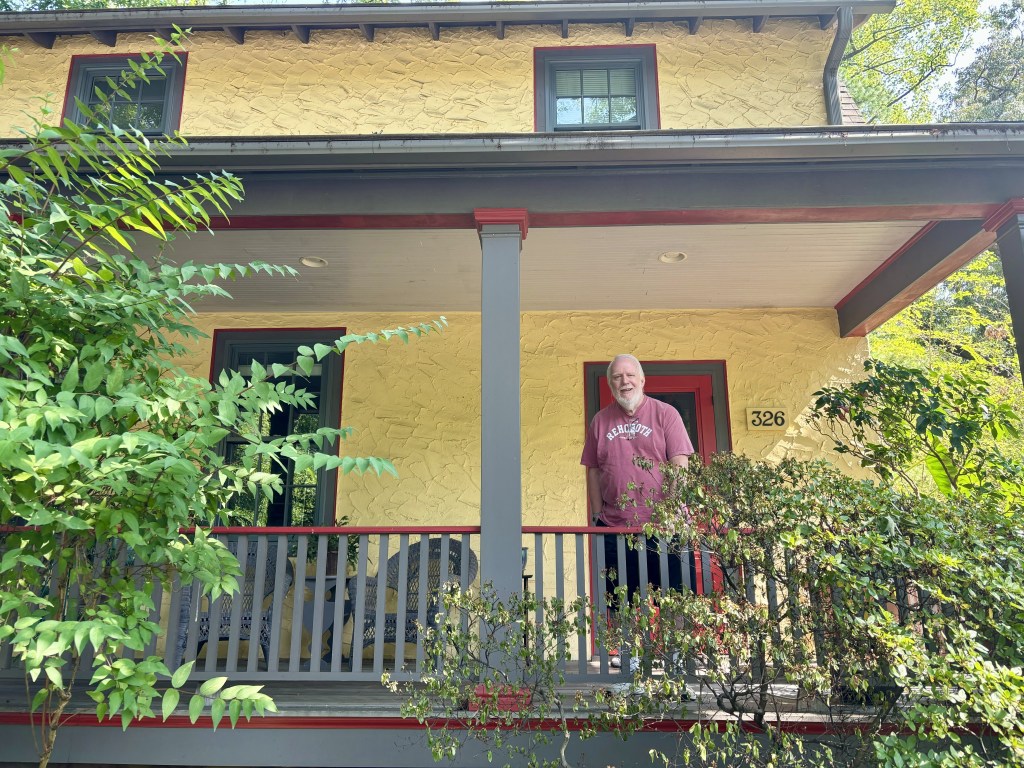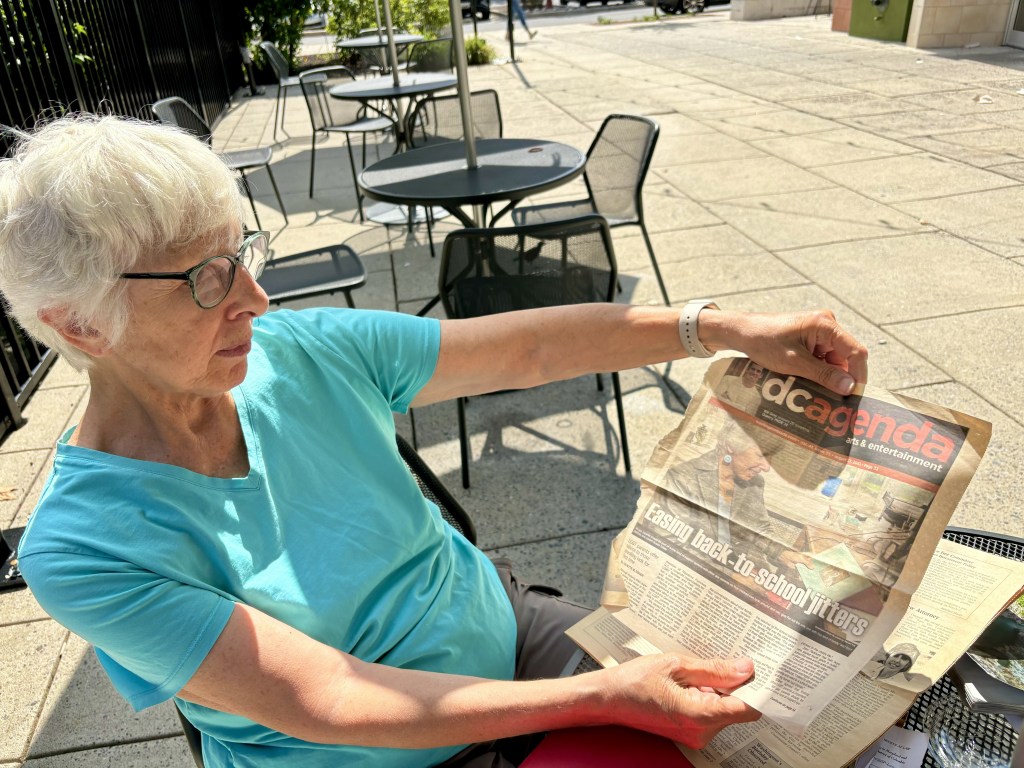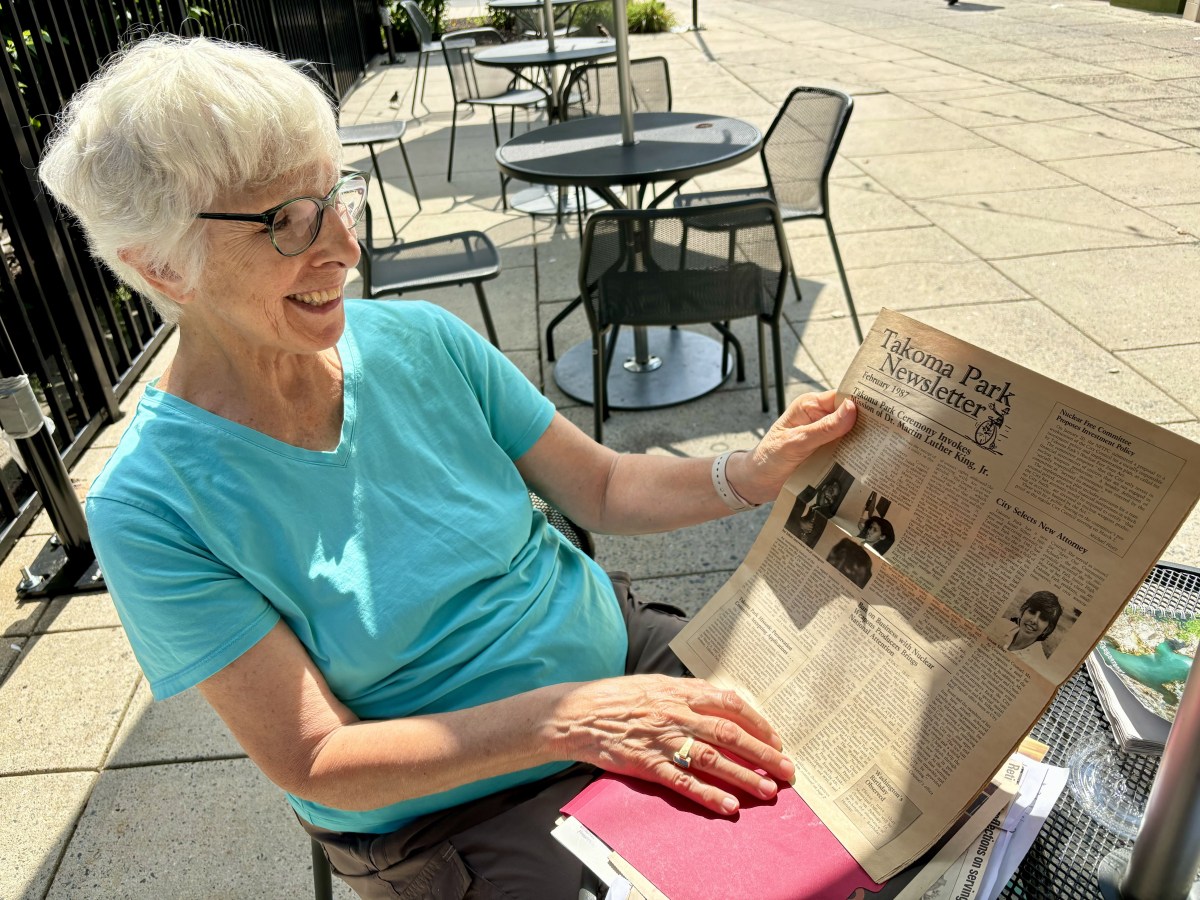In Montgomery County, the government annually commemorates LGBTQ+ Pride Month in June with a flag-raising and support for community events. A County Councilmember is openly gay, and so is the county’s chief administrative officer. Earlier this year, the council issued a referendum acknowledging the struggles that transgender people face and affirming its commitment to trans rights.
But the county hasn’t always been as welcoming and the local history of LGBTQ+ residents has often been hidden or eclipsed by Washington, D.C.’s legacy of queer activism. Now, as part of Montgomery Planning’s efforts to highlight the county’s diverse history, the county government has embarked on a project to map and recognize local sites that are significant to the LGBTQ+ community.
But what comes next remains a question.
“This is a regular part of the dialogue in New York City, Los Angeles, San Francisco,” said Rebeccah Ballo, the county’s historic preservation supervisor and leader of the project. “But [LGBTQ+] history is here as well. And it’s been really meaningful to work on it and to promote what’s already here that people have forgotten.”
The project started in 2018 as a partnership with the state. In 2016, the National Park Service authored the LGBTQ America theme study and- convened historians in the Washington metropolitan region to discuss the effort. In 2018, Preservation Maryland led a collaborative team of academic, municipal and community stakeholders to document the contributions of the LGBTQ+ community throughout the state.
Montgomery Planning’s Historic Preservation Office supported the effort by providing comments on the state’s LGBTQ Historic Context Study. But the planners didn’t stop there. In 2020, Montgomery Planning partnered with Preservation Maryland on an effort funded by the National Park Service and administered by the Maryland Historical Trust to list at least two LGBTQ-significant sites in the county with the Maryland Inventory of Historic Properties.
Ballo and her team designated several people and sites in the county as significant to LGBTQ+ history, but chose to focus on three: Robert Coggin, a pioneer activist for LGBTQ+ rights in the county; Bruce Williams, the first openly gay elected official in Maryland; and Sue Silber, a nationally recognized LGBTQ+ civil rights lawyer. Here are their stories:
The activist
The Silver Spring home of LBGTQ+ advocate Robert Coggin was one of the first that Montgomery Planning chose to focus on as a potential historical site in 2021, Ballo said. The house was determined to be eligible for the National Park Service’s National Register of Historic Places and is the first suburban, 20th century resource to be found eligible for LGBTQ+ history in Maryland, according to Ballo.
Silver Spring residents Tanner Wray and Karl Debus-Lopez met Coggin, who died in 2014, at a local support group for gay and lesbian couples after moving to Montgomery County in 1989. The couple said it was important for them to find a LGBTQ+ community in the area. While Montgomery County felt safer than many parts of the country, particularly due to its proximity to Washington, D.C., acceptance wasn’t universal, they explained.
“People knew about our relationship, but it wasn’t something that people went around and advertised. You had to be a little more discreet,” Debus-Lopez told MoCo360 in an interview.
Debus-Lopez noted Coggin had one conservative family member who changed their surname to “Coggins” to provide distance from Coggin’s work. But for Coggin, his identity was at the forefront of his activism, leading him to become a pioneer in LGBTQ+ rights in the Washington, D.C., metro region.
In 1984, the Montgomery County Council passed a bill making it illegal to discriminate based on “sexual orientation” in housing, employment and public accommodations. Coggin is largely considered to be the backbone of the push for the legislation, according to county officials. Wray and Debus-Lopez say they were grateful to move into the county with the law already on the books.
“He told us it was really hard because there were a lot of hateful people who spoke up, and there were groups that were trying to prevent the policy from going through,” Debus-Lopez said. “It was really significant, you know? It made me feel more comfortable, in a way, living in Montgomery County.”
Coggin, who worked at the National Institutes of Health (NIH) in Bethesda as an administrative assistant for most of his adult life, had founded the Suburban Maryland Lesbian and Gay Alliance in Montgomery County in 1982. He was no stranger to advocating for gay rights–he created the first Gay-Straight Alliance at the University of Virginia as a student in 1972, according to his obituary.
But Debus-Lopez and Wray said Coggin was somewhat modest about his activism–it wasn’t until he died at age 62 from complications of muscular dystrophy and the couple, as executors of his will, received papers he’d saved that they realized the extent of what he’d done.
“He was not somebody to prop himself up and I mean, we knew about it. He told us about it, and, you know, and we could tell,” Debus-Lopez said, recalling that high-profile gay activists would come to get-togethers at Coggin’s house in Silver Spring. “We talked about politics a lot, but he didn’t go on and on about, you know, what he had accomplished back then.”

Coggin frequently wrote opinion columns published in the now-defunct Montgomery Journal newspaper advocating for gay rights and created a scorecard for local politicians based on their support of issues relevant to LGBTQ+ residents, according to Ballo. But community was just as important to Coggin, who frequently hosted gatherings of local LGBTQ+ residents at his home.
Debus-Lopez and Wray said Coggin kept a list of county residents he knew who had died in the AIDS epidemic of the 1980s, and it was important to him to honor those lives as others panicked over the disease. Wray said it was “heartbreaking” how many friends Coggin lost, but the couple was grateful for his dedication to keep alive the memory of those who died.
“We knew someone at work [at the county’s public libraries] who passed away. It was horrible … it was kept secret,” Wray said. “The staff were freaking out because they didn’t understand that they couldn’t have gotten [AIDS]. There was a lot of fear among the staff.”
Wray said that later in Coggin’s life, as his disability progressed, Coggin became passionate about accessibility, and making sure NIH was using sign-language interpretation. He lobbied for research into muscular dystrophy and other disabilities.
While Coggin’s former home is now designated as a historical site, there’s one catch–the current owners have declined to allow it to be listed in the National Register of Historic Places, Ballo said. That means the house is only symbolically a historical site unless the owners change their minds or the house changes ownership.
“LGBTQ+ history is hidden a lot, and I think it also disappears,” Wray said. “I think the 1984 [legislation] from the county is significant, and the house should be recognized.”
The politician
Bruce Williams became the first openly gay elected official in Maryland when he was elected to the Takoma Park City Council in 1993. He had moved to Takoma Park with his partner, Jeff, in the 1980s as the owner of a home renovation business. He knew the area, having first lived in the county as a child in 1965 when his dad got a job in the District.
He hadn’t planned to get involved with politics when he moved to Takoma Park, but then a woman who had been his house cleaner had a stroke and she was threatened with condemnation of her house when she couldn’t keep up with it.
“I became her advocate, and I worked with the city to resolve the situation, and that got me involved in affordable housing issues,” Williams said in an interview with MoCo360 at his Takoma Park home.

The next issue that Williams worked on was the effort to change the definition of family in Takoma Park to include same-sex domestic partners–which passed. Soon, he became such a fixture in local politics that he says his friends and neighbors urged him to run for city council.
“I said, yeah, I’m not going to challenge the incumbent. And two years later, the incumbent came to me, and he said, ‘If you run, I’ll endorse you on one condition–would you run as openly gay? I said, ‘That’s no problem,’ ” Williams said. “So I did, and that was 1993 and I was elected for 22 years, the last eight as mayor.”
Williams’ house, where he and his husband have lived for more than 40 years, has been designated by Montgomery Planning as an LGBTQ+ historical site. The home, however, does not qualify for the National Register of Historic Places since Williams is alive, according to Ballo.
For Williams, being out continues to be “no problem” for the most part. But he recalled one Fourth of July parade in the city decades ago in which a few attendees threw objects at a Takoma Park-based LGBTQ+ organization, and he said he often struggled to get through to former Montgomery County Councilmember Bill Hanna, who he said sometimes espoused anti-gay views. Hanna died in 2011 at age 89.
Williams knew Hanna from their work together with the Maryland Association of Counties and he wanted to try to get through to him and develop a better relationship.
“When I saw him [at a conference] in Ocean City, I said, ‘Bill, how are you? Come on over and meet my family. This is my husband, my daughter, our grandson.’ You know, I made it personal,” Williams said.
Williams said he consistently met with legislators across the county and in Annapolis to make sure they knew a gay politician and had a personal connection to the issues.
While LGBTQ+ activism was important to Williams–he pushed to pass Takoma Park’s domestic partner registry in 1993–he cites progress on a broad range of issues, including housing, environmental conservation and economic development, among his proudest work.
“I’m proudest of my time as mayor, not necessarily for any one particular piece of legislation, but my style of operating,” Williams said. “I may not necessarily agree with what somebody wanted to present, but I basically said, ‘Have at it. Convince people, convince me.’ And in many instances, I was convinced and voted for it. It was providing the arena for somebody to make the case.”
For LGBTQ+ county residents, Williams’ historic election was significant.
“Bruce’s visibility helped,” Wray told MoCo360 in an interview. “In 1993, they had the Takoma Park domestic partner registry, and we were among the first registered [when we lived there]. I think we were No. 4.”
As for the county recognizing Williams’ house as a historical site, Williams said he is honored by the designation.
“I think it’s kind of nice,” he said.
The litigator
On an August afternoon in Silver Spring, Sue Silber is sorting through news clippings from the past 40 years. She’s saved everything–from the Takoma Park government announcement that she had been hired as city attorney to national opinion pieces she wrote on LGBTQ+ rights under the law.
“It was wonderful. We got so much done,” she said, reflecting on her career as a lawyer known locally and nationally as an advocate of LGBTQ+ rights as she perused the clippings.
Like Williams’ house, Silber’s former Takoma Park home has been designated by Montgomery Planning as an LGBTQ+ historical site, but does not qualify for the National Register of Historic Places because Silber is still alive.

Silber came out as a lesbian in 1978 and moved to Montgomery County in 1981 after graduating from law school at the University of Buffalo. She became Takoma Park’s city attorney in 1984 and held the job for more than 30 years.
Silber worked closely on union issues as the city was an early adopter of collective bargaining for government employees, as well as sanctuary and refugee issues. She also was involved in legal issues pertaining to Takoma Park’s acknowledgment of the makeup of LGBTQ+ families, including the 1993 domestic partner registry.
“It was a job of a lifetime because everything was so exciting and creative,” Silber said. “Any time we could make things more equal, we did.”
In 1984, when the County Council was deliberating the proposed legislation that would make discrimination based on sexual orientation illegal, Silber used her legal knowledge to advocate for the legislation. It wasn’t easy, Silber said. Much like Williams, she hadn’t faced much pushback from Takoma Park residents or officials for her identity. But advocating at the council level was a different story. A group called the Citizens for a Decent Government, which opposed the anti-discrimination bill, led a petition that amassed nearly 24,000 signatures.
When Hanna made comments suggesting there were no gay people in the county during a council meeting, Silber couldn’t help but push back.
“I said, ‘Well, Mr. Hanna, if you had a gay person in your family, I don’t think they’d tell you,’” Silber recalled, saying the room erupted supportively at her comments.
Due to the efforts of Silber and other advocates such as Coggin, the legislation passed despite the pushback.
For decades, Silber was the go-to lawyer in the area for local LGBTQ+ couples dealing with civil rights and domestic issues, including Debus-Lopez and Wray. She is known nationwide for her legal work representing LGBTQ+ couples and families to secure legal partnerships and parental rights. She also played a key role at the state level in removing sodomy as a criminal statute in Maryland, as well as working to legalize same-sex marriage in the state.
“At times under the law, we were trying to put a square peg in a round hole. How do we make this fit? So you’re coming up with structures that a straight person might take for granted,” Silber said. “There was often a lot of hostility.”
Silber connected with other LGBTQ+ family rights lawyers across the country and strived to understand the law as well as possible in order to protect LGBTQ+ residents. She also was open about her family, appearing in the 1990s on an episode of the TV show 20/20 hosted by Barbara Walters in which her two children were interviewed about their experiences with gay parents.
“Representation, visibility is everything,” Silber said. “We have to be open.”
Silber said she hopes the county’s project will inspire residents to use the past to keep moving forward toward equality for all. She cited her frustration with anti-transgender sentiment across the country.
“I’m not interested in a white, male solution to the problems of this country. I’m interested in how we build a coalition of many groups that advance a culture that will take care of all,” Silber said.
What comes next
Ballo said she continues to work on the project to preserve local LGBTQ+ histories, and a June presentation to the council reignited public officials’ interest in these stories.
“We don’t have these types of discussions very often to uplift and to unveil the folks who have laid the groundwork for the rights and liberties and freedoms that my husband and I have to enjoy,” councilmember Evan Glass (D-At-large), the first openly gay member of the County Council, said after the June 18 presentation.
He said the county needs to continue to make space for staff to work on projects like these.
“I think it also is really meaningful to lift up these individuals while they are still with us in our community,” council Vice President Kate Stewart (D-Dist. 4) noted, saying that she’d worked with Williams and Silber during her tenure with the Takoma Park government.
Ballo has given presentations to Montgomery County Public Schools students and faculty and the county designees are featured in a state history booklet called Planting The Rainbow Flag. An online map maintained by Preservation Maryland includes highlights from the county’s LGBTQ+ history.
“Public history can take many forms, right? Everything from a museum, a walking tour, historical markers, educational curriculum in the schools, digital media,” Ballo said. “We have lots of ideas.”
But there are logistical issues ahead. One step would require the council to amend the county master plan to officially designate the three homes as historic sites. Ballo said she would consider requesting funding from the council “to list more of these sites, to protect them permanently, and to write about and promote that history more broadly.”
Ballo said while she hopes the county will help to continue to fund the project and make it bigger, she would also be happy to partner with outside organizations.
“I see my role as promoting the work that other people have done and that other people continue to do, and to continue to make more spaces for those conversations to happen because it doesn’t have to be our office that’s doing it–and it shouldn’t just be,” Ballo said. “It should be lots of people and all of us working together to promote each other’s work around this history.”



